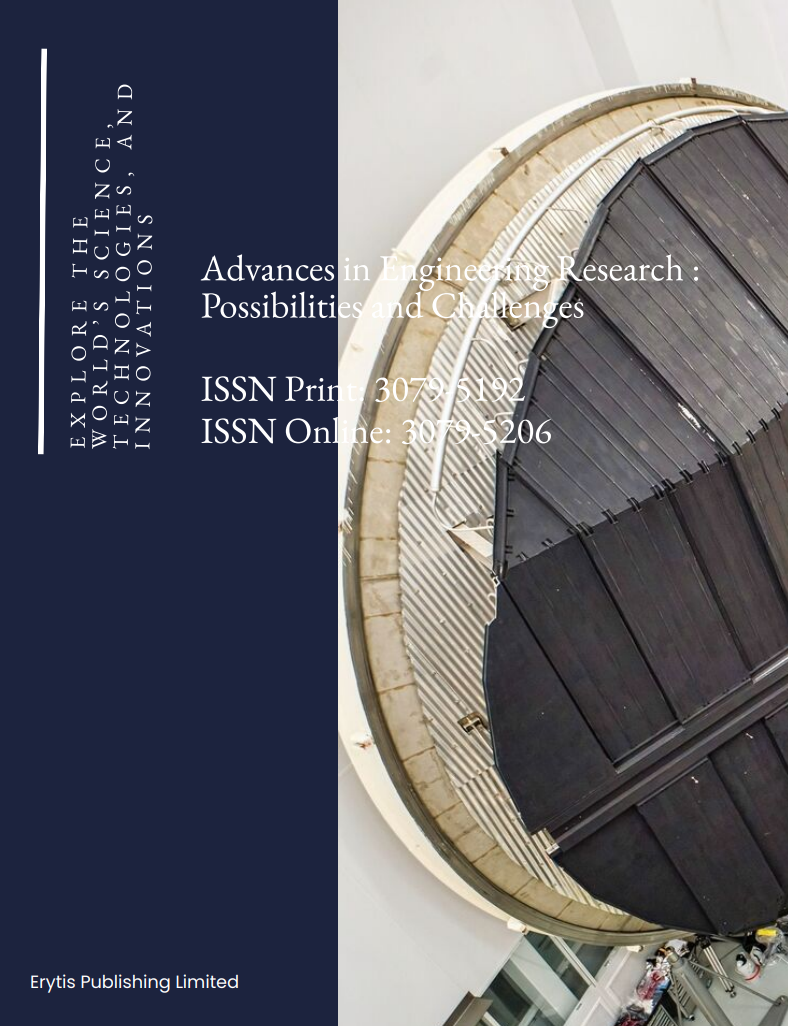Active Terahertz Surface Plasmon Polariton Multi-focal Focusing Lens based on Graphene Metasurface
DOI:
https://doi.org/10.63313/AERpc.9030Keywords:
Terahertz, Surface plasmon polariton, Multi-focal focusing lens, GrapheneAbstract
Terahertz (THz) focusing lenses, as crucial components for manipulating THz wavefronts and achieving energy concentration, play a vital role in fields such as THz imaging, sensing, and communication. Therefore, in this work, we de-signed and simulated an active terahertz surface plasmon polariton (SPP) mul-ti-focal focusing lens based on graphene. The lens consists of four concentric slit resonator rings (SRRs). By integrating graphene onto each SRR and applying bias voltages, the device achieves independent "ON/OFF" control over the SPP excitation efficiency for any two selected slit resonator rings. This allows for dynamic switching at the same operating frequency to produce various distinct focal distributions. Our design not only offers a new avenue for realizing com-pact and multifunctional THz wavefront manipulation devices but also demon-strates significant potential for future applications in areas such as THz dynamic beam shaping and reconfigurable imaging.
References
[1] Xu, Z.H., He, J., Hao, X., et al. (2025) Quantitative terahertz communication evaluation of compact valley topological photonic crystal waveguides. ACS Photonics, 12(4), 1822-1828.
[2] Chen, H., Ren, H., Wang, W., et al. (2024) Terahertz chiral edge states enable inner-chip state transition and interchip communications over wireless terminals. Chinese Optics Letters, 22(10), 103701.
[3] Yang, Y., Yamagami, Y., Yu, X., et al. (2020) Terahertz topological photonics for on-chip communication. Nature Photonics, 14, 446-451.
[4] Wang, Q., Chen, Y., Mao, J., et al. (2023) Metasurface-assisted terahertz sensing. Sensors, 23, 5902.
[5] Wang, H., Zheng, F., Xu, Y., et al. (2023) Recent progress in terahertz biosensors based on artificial electromagnetic subwavelength structure. Trends in Analytical Chemistry, 158, 116888.
[6] Xu, Y., Chen, X., Zhang, S., et al. (2024) Terahertz biochemical sensor based on multipa-rameter metasurface for molecular fingerprint detection. Optics & Laser Technology, 177, 110959.
[7] Chen, J., Ding, K., Pi, Y., et al. (2024) Discriminative non-destructive imaging of flip chips based on photoacoustic remote sensing microscopy with layered elasto-optic mod-els. Optics Express, 32(13), 22700-22713.
[8] Chen, J., Ding, K., Pi, Y., et al. (2024) In-line imaging and recognition of flip chip fabrication defects by real-time photoacoustic remote sensing system. Photoacoustics, 38, 100614.
[9] Wang, X., Wang, X., Yao, Z., et al. (2023) Digital imaging through terahertz mul-tifrequency programmable metasurface based on BIC. Optical Materials, 143, 114154.
[10] Liu, X., Wang, Q., Zhang, X., et al. (2019) Thermally dependent dynamic meta-holography using a vanadium dioxide integrated metasurface. Advanced Optical Materials, 7, 1900175.
[11] Xu, Q., Zhang, X., Xu, Y., et al. (2017) Polarization-controlled surface plasmon holog-raphy. Laser & Photonics Reviews, 11(1), 1600212.
[12] Jin, X., Wang, Z., Liu, M., et al. (2025) Vectorial beams with longitudinally varying polariza-tions generated by surface-wave metasurfaces. Laser & Photonics Reviews, 19(2), 2402298.
[13] Zang, X., Zhu, Y., Mao, C., et al. (2018) Manipulating terahertz plasmonic vortex based on geometric and dynamic phase. Advanced Optical Materials, 6(24), 1801328.
[14] Karnetzky, C., Zimmermann, P., Trummer, C., et al. (2018) Towards femtosecond on-chip electronics based on plasmonic hot electron nano-emitters. Nature Communications, 9, 2471.
[15] Tanemura, T., Balram, K.C., Ly-Gagnon, D.S., et al. (2011) Multiple-wavelength focusing of surface plasmons with a nonperiodic nanoslit coupler. Nano Letters, 11, 2693-2698.
[16] Chen, P.Y. and Alù, A. (2011) Atomically thin surface cloak using graphene monolay-ers. ACS Nano, 5(7), 5855-5863.
Downloads
Published
Issue
Section
License
Copyright (c) 2025 by author(s) and Erytis Publishing Limited.

This work is licensed under a Creative Commons Attribution 4.0 International License.















